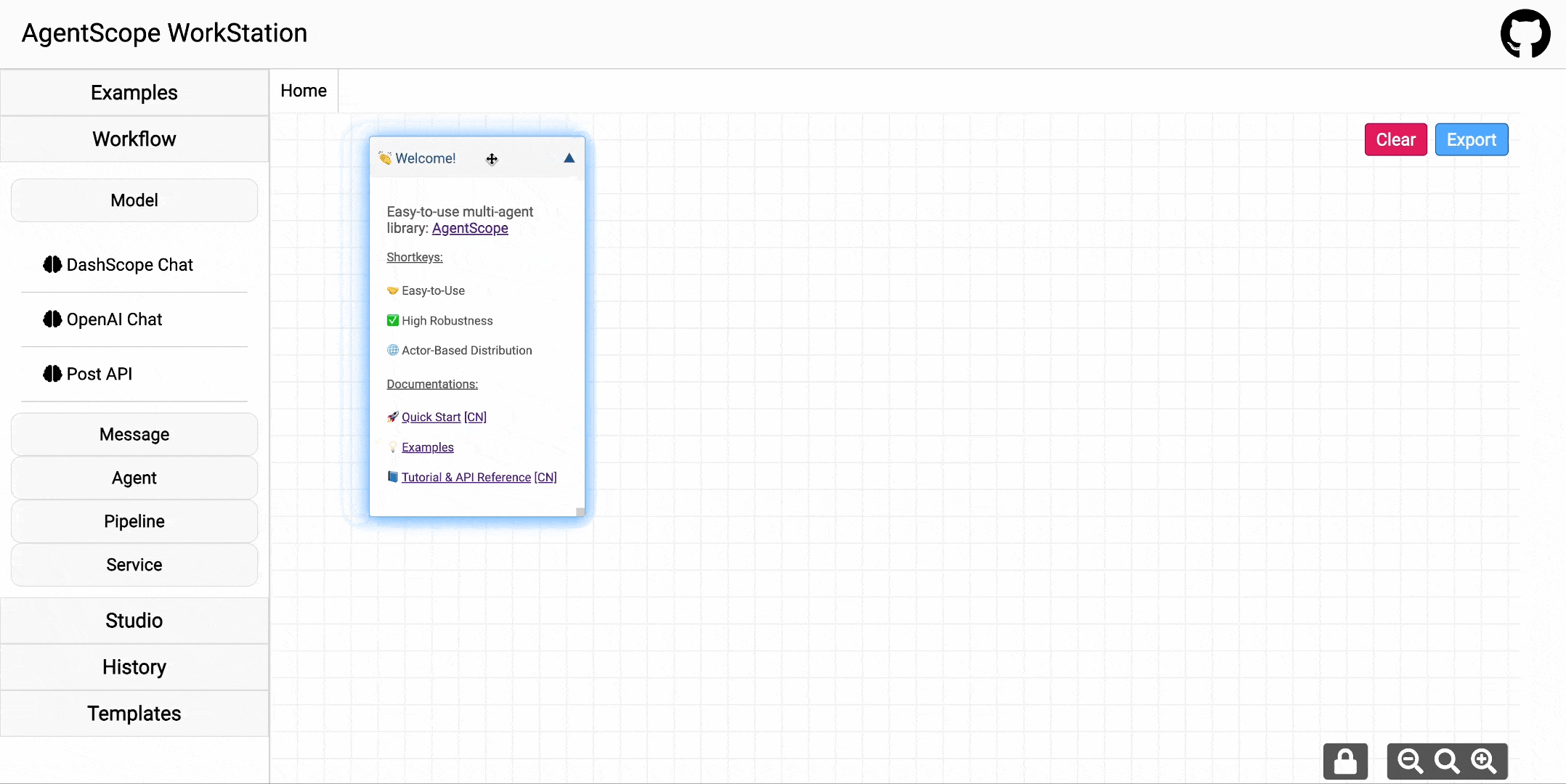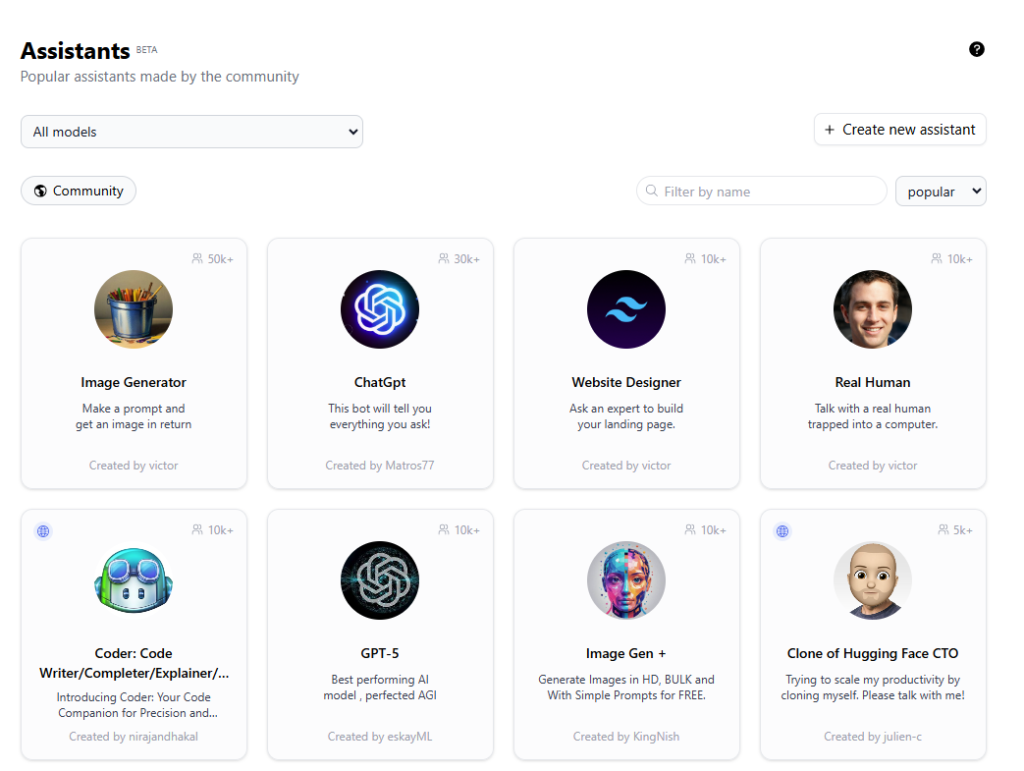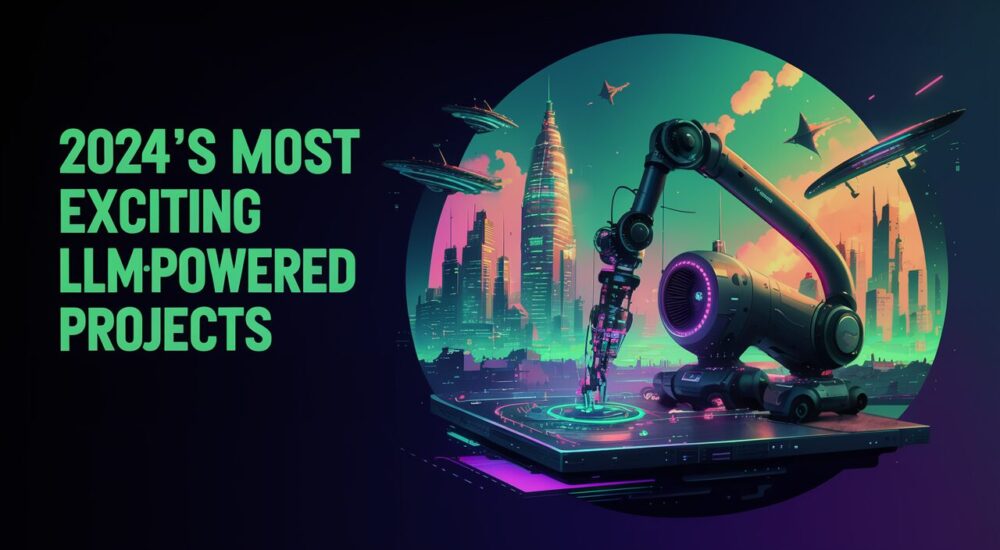2024 Q3 Most Exciting LLM-powered Projects
Following up on the list of 2023’s, Q1 2024’s, Q2 2024’s most exciting projects, here is the list of the most useful, innovative and exciting LLM-powered projects I found in 2024 Q3.
GraphRAG: Boost Your LLM’s Performance with GraphRAG ❇️
Microsoft’s GraphRAG repository offers a cutting-edge, graph-based Retrieval-Augmented Generation (RAG) system designed to enhance the reasoning capabilities of large language models (LLMs) with structured data extracted from unstructured text1. By leveraging knowledge graphs, GraphRAG significantly improves the accuracy and depth of responses to complex queries, making it an invaluable tool for enterprises dealing with proprietary data2. Its modular design and user-friendly Solution Accelerator package on Azure ensure a seamless integration and deployment experience3. If you’re looking to boost your LLM’s performance in handling intricate datasets, GraphRAG is a must-try solution.
EDA GPT: LLM-powered data analysis 📊
EDA GPT is an innovative open-source data analysis tool that streamlines the process of exploring and gaining insights from both structured and unstructured data. What sets it apart is its ability to handle a wide range of data formats, including CSV, XLSX, SQLite, PDFs, and images, while leveraging advanced language models for intelligent analysis. The tool offers a user-friendly interface that allows users to interact with their data using natural language queries, generate visualizations, and obtain context-rich analysis reports. EDA GPT’s architecture incorporates sophisticated features such as multimodal search capabilities, advanced RAG techniques, and a unique “Lang Group Chain” for handling complex queries. With support for various LLMs, including offline options, and the ability to clean and edit data automatically, EDA GPT empowers users of all skill levels to make data-driven decisions efficiently and effectively. Demo video available here.

Composio: AI Agent framework with wide range of tools 🦾
Composio is a powerful toolset for AI agents that offers seamless integration with over 100 tools across various categories, including software platforms, operating systems, browsers, and more. Developers should consider using Composio for its ability to equip AI agents with high-quality tools and integrations without the hassle of managing authentication, accuracy, and reliability issues. A key selling point is its support for multiple agent frameworks like OpenAI, Claude, and Langchain, allowing developers to implement these tools with just a single line of code. Additionally, Composio now supports JavaScript, expanding its accessibility and making it an even more versatile choice for developers looking to enhance their AI agent capabilities across different programming environments.

LiteLLM: LLM APIs is OpenAI format 🌐
We all have screamed at some point because a new model provider does not follow the OpenAI SDK format for text, image, or embedding generation. Now you can use LiteLLM to call all LLM APIs using the OpenAI format. Use Bedrock, Azure, OpenAI, Cohere, Anthropic, Ollama, Sagemaker, HuggingFace, Replicate (100+ LLMs).

Agentscope: Easy LLM powered agents 🤖
AgentScope is an innovative platform designed to simplify the development of multi-agent applications powered by large language models (LLMs). It offers a user-friendly drag-and-drop interface, comprehensive documentation, and a variety of pre-built components, making it accessible even for developers with limited experience in multi-agent systems. With features like prompt tuning, streaming mode, and support for various OpenAI models, AgentScope enables the creation of sophisticated, scalable applications. This repository is ideal for a tech blog article as it showcases cutting-edge advancements in AI and provides practical tools for developers to experiment with and implement multi-agent solutions.

Llama recipes: Examples using Llama models 👩🏼🍳
Llama Recipes is a comprehensive repository designed to facilitate the fine-tuning of Meta’s Llama models, including the latest Llama 3.1. It provides a scalable library with scripts and notebooks for various use cases such as summarization, question answering, and domain adaptation. The repository supports both default and custom datasets and offers solutions for running Llama models locally, in the cloud, or on-premises. With its detailed examples and support for composable FSDP and PEFT methods, Llama Recipes is an excellent resource for developers looking to leverage advanced language models in their applications1. This makes it a valuable addition to any tech blog article focused on AI and machine learning advancements.
Gemma 2 2B: Compact & Powerful 💎
In a departure from our usual coverage of large language models (LLMs), we’re excited to highlight Google DeepMind’s Gemma 2 2B, a compact AI model that punches well above its weight class. This 2 billion parameter model offers a compelling blend of performance and efficiency that makes it accessible for a wide range of commercial PCs.
- Impressive Performance: Despite its relatively small size, Gemma 2 2B outperforms larger models like GPT-3.5, scoring 1130 on the Chatbot Arena benchmark.
- Efficiency at Scale: The model processes up to 2 trillion tokens, demonstrating robust capabilities across various applications.
- Hardware Versatility: Optimized for different hardware configurations, Gemma 2 2B is suitable for edge devices and laptops, making AI more accessible than ever.
- Open Source and Commercial-Friendly: Available under Gemma terms, the model can be freely used for both research and commercial applications.
- Ideal for On-Device AI: Gemma 2 2B excels in scenarios where hardware resources are limited, opening up new possibilities for local AI processing.
For developers and businesses looking to implement powerful AI capabilities without the need for extensive computing resources, Gemma 2 2B presents an exciting opportunity. Its ability to run efficiently on most commercial PCs makes it a game-changer for democratizing AI technology.

ClaudeDev: VSCode plugin autonomous engineer 🚀
Claude Dev is an open-source AI tool that acts as an autonomous software engineer within Visual Studio Code, making it a game-changer for developers. By automating complex tasks like reading and writing files, analyzing code, and executing terminal commands with user supervision, it significantly boosts productivity and ensures control and security. Its human-in-the-loop GUI allows developers to safely explore AI’s potential while maintaining oversight, making it an invaluable asset for enhancing coding efficiency and innovation. Source code.

Huggingface assistants: Unlocking Custom AI Power 🤗
Huggingface Assistants on HuggingChat are a dynamic and customizable way to create and share AI-powered tools with a community. They allow users to package prompts with different open-source models, offering flexibility in how they interact with content and provide answers. With recent updates, Assistants can now connect to the Internet, allowing for real-time data retrieval and more contextually relevant responses. This feature supports various modes, from general web searches to domain-specific queries and direct URL access, making it an ideal choice for users who want to tailor their AI’s knowledge base or functionality. Whether for casual use, specialized tasks, or interactive projects, Huggingface Assistants provide a powerful, open-source platform to enhance your AI experience and share it with others.

MindSearch: Autonomous (re)search engine🔎
MindSearch is an innovative, open-source AI search engine framework designed to mimic human-like search capabilities, making it an excellent choice for developers looking to build advanced search solutions. Leveraging large language models (LLMs) and a multi-agent architecture, MindSearch excels in decomposing complex queries into manageable sub-queries, ensuring comprehensive and accurate information retrieval. Its dynamic graph construction process and detailed solution paths enhance the depth and breadth of responses, outperforming other AI search engines like ChatGPT-Web and Perplexity.ai Pro. With support for both closed-source and open-source LLMs, and optimized user interfaces, MindSearch offers flexibility and superior performance, making it a compelling tool for creating sophisticated, user-centric search applications.
v0.dev: Chat based web development companion 💬
v0.dev by Vercel is a game-changer for developers looking to streamline their UI creation process. This AI-powered tool generates ready-to-use React components using shadcn/ui and Tailwind CSS from simple text prompts. It’s perfect for quickly prototyping or enhancing your projects without getting bogged down in repetitive coding tasks. With v0.dev, you can focus more on innovation and less on the nitty-gritty details, making it a smart choice for efficient and effective web development. Checkout their gallery for inspiration or checkout this tutorial to find out how you can combine cursor with v0.

OpenHands: Open source Devin alternative 👨🏻💻
OpenHands, is an essential tool for anyone developing AI agents, boasting nearly 30k stars on GitHub. This platform enables the creation of generalist agents that can write code, fix bugs, and ship features, mimicking human developers. It offers a robust interaction mechanism for agents, interfaces, and environments, a sandboxed OS and web browser for safe code execution, and multi-agent support. With its comprehensive evaluation framework and the ability to collaborate with human developers, OpenHands is a powerful resource for advancing AI development.
MetaGPT: Python multi-agent framework 🦾
MetaGPT is an impressive Multi-Agent Framework with over 40K stars on GitHub. This innovative platform can simulate roles such as engineers, product managers, architects, and project managers. With just a single line of text, MetaGPT can generate the entire workflow of a software company, including data structures, APIs, documents, user stories, competitive analysis, and requirements. By integrating Standardized Operating Procedures (SOPs) into its processes, MetaGPT ensures efficient and structured workflows. It also supports incremental development, multilingual capabilities, and multiple programming languages, making it a versatile tool for collaborative AI development.
GPT Pilot: Your new agentic AI developer companion 🤖
The GPT Pilot repository by Pythagora-io represents a significant leap in AI-driven software development, offering a robust tool that goes beyond mere code generation to build fully functional applications. As the core technology behind the Pythagora VS Code extension, GPT Pilot serves as a comprehensive AI developer companion capable of writing, debugging, and discussing code with developers. This open-source project aims to demonstrate the potential of large language models (LLMs) in automating up to 95% of the coding process, leaving the remaining 5% for human oversight to ensure production-ready quality.
AutoGPT: Accessible AI agents for everyone 🚀
AutoGPT is a powerful open-source tool that enables users to create and run intelligent AI agents for various automated tasks. It consists of two main components:
- The AutoGPT Builder, a user-friendly frontend for designing agents using a flowchart-style interface
- The AutoGPT Server, which runs the agents in the backend.
The project aims to simplify the process of building, testing, and delegating tasks to AI, making it an attractive option for developers and businesses looking to leverage AI automation.
AutoGPT offers practical applications such as a Reddit marketing agent that responds to product inquiries and a YouTube content repurposing agent that creates blog posts from video transcripts. With its intuitive design, extensive documentation, and active community support, AutoGPT stands at the forefront of AI innovation, providing a flexible and powerful platform for creating custom AI agents to tackle a wide range of tasks.
Taipy: Data into production-ready web apps in no time ⚡
Taipy is an innovative open-source Python framework designed to simplify the creation of data-driven and AI-powered web applications. It caters specifically to data scientists and machine learning engineers, allowing them to build production-ready applications without learning new languages or dealing with complex development and deployment processes.
Taipy’s unique two-in-one approach combines user interface generation with scenario and data management, enabling developers to focus on their core algorithms. The framework supports various data formats and offers features like scenario management and pipeline creation.

With its intuitive design and powerful capabilities, Taipy positions itself as a versatile tool for rapidly developing sophisticated data and AI applications. Also available in the form of VS Code extension, called Taipy studio.
Agent Zero: Unleash your Personal AI Powerhouse 🚀
Agent Zero is an innovative, open-source AI framework designed to be a personal, organic, and fully customizable assistant. Unlike predefined agentic frameworks, Agent Zero is dynamic, learning and growing through use. It leverages the computer as a tool, using the operating system to accomplish tasks by writing its own code and utilizing the terminal.
The framework supports multi-agent cooperation, allowing agents to create subordinates for subtask management. A key feature is its complete customizability; users can modify system prompts, tools, and behaviors to suit their needs.
Agent Zero emphasizes effective communication between agents and users, with real-time streamed and interactive terminal output. The framework is designed to work with even small language models and includes features like persistent memory and automatic HTML logging. A notable example of its capability is its ability to use Docker containers for a safe, isolated environment. While powerful, users are cautioned about potential risks and encouraged to run Agent Zero in controlled settings.
The framework’s flexibility and transparency make it an intriguing tool for those looking to develop and customize their own AI assistants.
LlamaParse: GenAI-native document parser for unstructured file types 📰
LlamaParse is an open-source GenAI-native document parser designed to streamline the processing of complex documents for various LLM applications, particularly RAG (Retrieval-Augmented Generation) and AI agents. This powerful tool stands out for several reasons:
- Versatility: LlamaParse excels at handling a wide range of file types, including PDFs, PowerPoint presentations, Word documents, Excel spreadsheets, and HTML files. It can effectively parse text, tables, and visual elements, even from documents with complex layouts.
- Advanced capabilities: The parser offers robust table recognition, accurately extracting embedded tables into both text and semi-structured formats. It also provides multimodal parsing and chunking, leveraging cutting-edge models to extract and structure visual elements like images and diagrams.
- Customization: Users can input custom prompt instructions to tailor the output to their specific needs, offering flexibility for various use cases.
- Easy integration: LlamaParse integrates seamlessly with LlamaIndex, a popular framework for building LLM-powered applications, making it a valuable addition to existing AI workflows.
For developers and researchers looking to quickly implement document parsing in their LLM projects, LlamaParse offers a free tier of up to 1000 pages per day, with affordable paid plans for higher volume usage.
An interesting example of LlamaParse in action is its integration with SimpleDirectoryReader, allowing users to easily process entire directories of PDF files. This showcases the tool’s potential for large-scale document processing and analysis in real-world applications.
By simplifying the complex task of parsing diverse document types, LlamaParse enables developers to focus on building more sophisticated AI applications without getting bogged down in the intricacies of document processing.
More updates coming soon
Revisit this article for more updates and let me know in the comments if you think I missed anything interesting.


